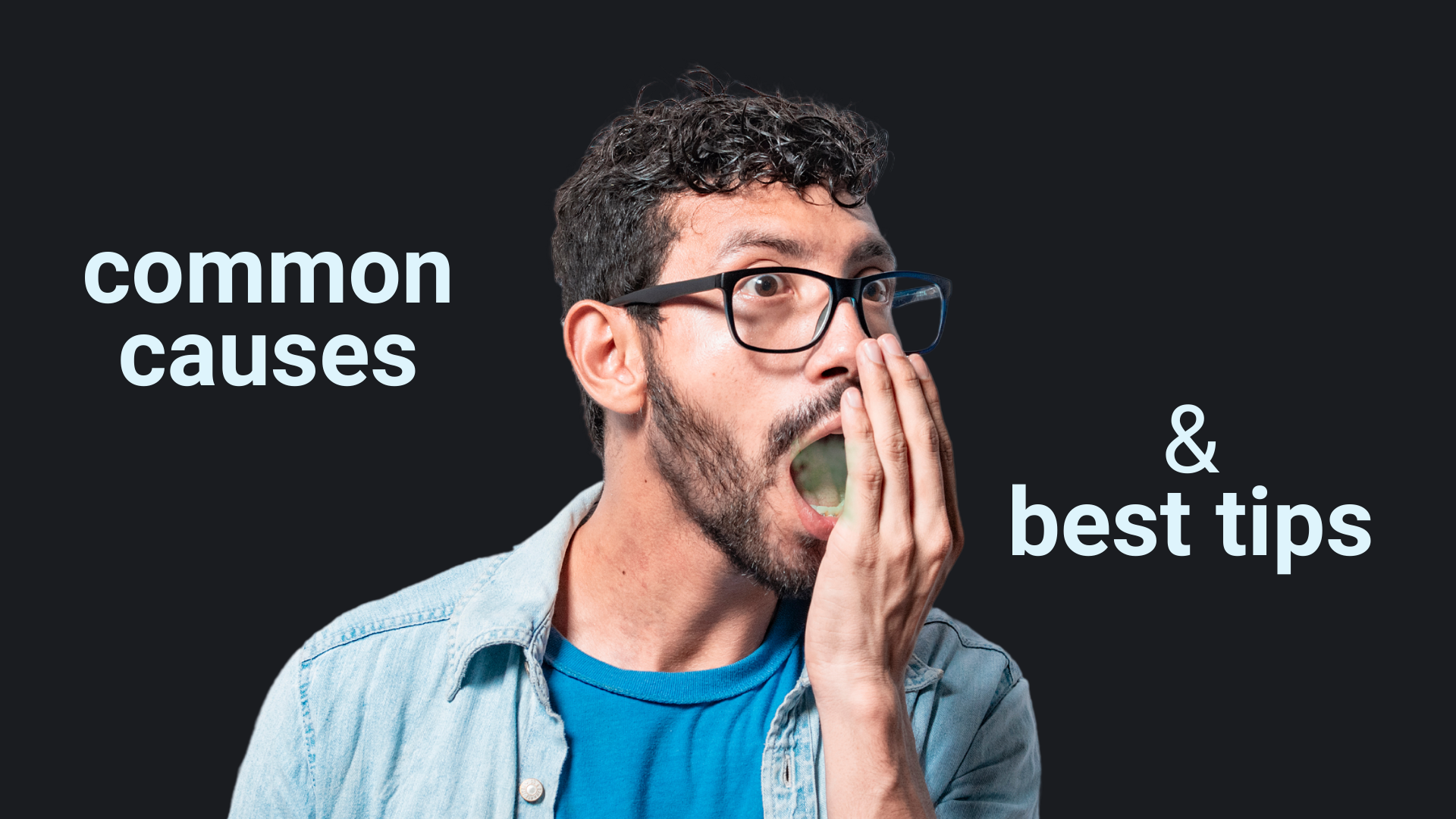Tired of worrying about your breath? You’re not alone. Bad breath, or halitosis, is a common problem that can be embarrassing and frustrating. But don’t worry, there are solutions! This blog post will break down the most common causes of bad breath and offer tips on how to freshen up your smile.
What Causes Bad Breath?
Bad breath can be caused by a variety of factors, including:
- Poor Oral Hygiene: Neglecting your oral health is a major contributor to bad breath. Food particles and bacteria build up on your teeth, tongue, and gums, creating an odour-causing environment. Regular brushing, flossing, and tongue scraping are essential for maintaining fresh breath.
- Tongue Trouble: Your tongue can accumulate bacteria, leading to bad breath. Regular tongue cleaning with a scraper or brush can help remove these odour-causing culprits.
- Types of Diet: A Keto diet, which is low in carbohydrates, can lead to a distinctive “acetone breath” due to the body burning fat for fuel. Additionally, fasting and dehydration, common practices in some diets, can reduce saliva production, creating a dry mouth environment that promotes bacteria growth.
- Beyond specific diets, some foods, such as garlic and onion, can cause temporary bad breath due to being rich in Sulphur, especially when consumed raw.
- Medical Issues: Frequent upper respiratory infections and sinusitis can contribute to bad breath due to mucus buildup. Additionally, repeated inflammation in the tonsil area can lead to the formation of tonsil stones. These are small clumps that form in the tonsils and can cause bad breath.
- Dental Appliances: Dentures and orthodontic retainers can accumulate bacteria if not cleaned properly, leading to bad breath. Regular cleaning of these appliances is crucial.
Tips for Fresher Breath
- Brush and floss regularly: This is the foundation of good oral hygiene. Brush your teeth at least twice a day and floss once a day.
- Clean your tongue: Use a tongue scraper or brush to remove bacteria from your tongue.
- Stay hydrated: Drinking plenty of water helps to keep your mouth moist.
- Watch your diet: Limit your intake of foods that can cause bad breath, such as garlic, onions, and strong-smelling cheeses.
- Visit your dentist regularly: Regular dental checkups can help identify and treat any underlying dental problems that may be causing bad breath.
If you’ve tried these tips and your bad breath persists, seeing your dentist to rule out any underlying medical conditions is important. Remember, fresh breath is important for your overall health and well-being. By following these tips, you can enjoy fresher breath and increased confidence.

